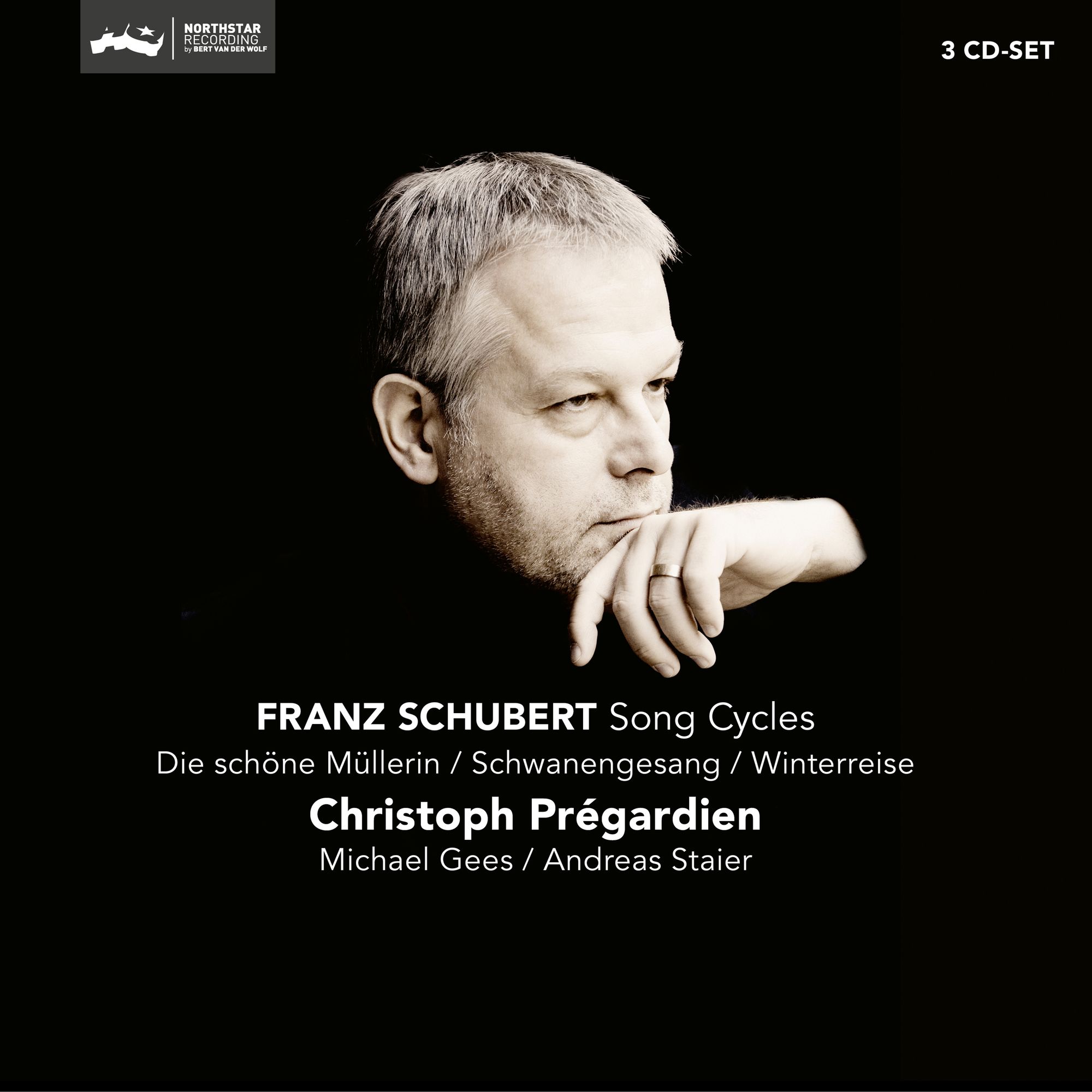Schubert: Three Song Cycles

A fine set of performances here from Christoph Prégardien, a singer who has impressed in Schubert at the Wigmore on more than occasion (with James Bailieu here and with Christoph Schnackertz here). It is tremendous to have the three great Schubert song-cycles in one place from him: and, as we shall see, in one of them he is joined by a fortepiano as opposed to a modern grand.
In this article on Andrè Schuen and Daniel Heide's Müllerin on DG, I outlined the structure of thr piece, with examples. If anything, Prégardien and Gees are even more persuasive. Listen to this final "Des Baches Wiegenlied":
Michael Gees is a simply astonishing collaborator: he provides pianistic gold in "Ungeduld". And just listen to the purity fo Prégardien's voice in the ninth song, "Des Müllers Blumen":
Prégardien adds the odd decoration to the line, which to me adds to the spontaneity of the performance. While there are more celebrational performances of "Mein!," "Pause" is one of the greats (and itself includes some lovely inserts to the vocal line).
This is far more than Prégardien with a beautiful voice and afine pianst - it is a real progression from frist to last. To supplement this disc, let's see a video of Prégardien and Gees in action with the entire cycle:
The second disc comprises Schwanengesang plus the song Herbst (Autumn), D 945, of the same year. A shame that the only other Rellstab setting outside of Schwanengesang desn't appear here: the magnificent Auf dem Strom, D 943, for voice, horn and piano, so let's supplement the Prégardien with a performance from Prégardien himself, with Olivier Darbellay on horn and Gees again on piano:
On the present release, the accopmaniment changes to fortepiano, the accompanist to the ever-excellent Andreas Staier, for Schwanengesang, the "odd man out" of the Schubert song cycles in that it was assembled posthumously. The combination of Prégardien and Staier is superb, and the dramatic songs in particular flourish. Here's "Kriegers Arhung":
... and here's the imposing "Atlas," with a backbone of bass from the fortepiano:
The song "Im Fenster" emerges as a major sung tone-poem, absolutely rapt, a microcosm of vast dimensions, a celebration of quiet, contained joy contained in less than four minutes:
As for Winterreise, there is something perfectly judged about thsi opening, and how the shift to the major mode is perfectly achieved by Michael Gees around the four-minute mark:
We feel pain in "Geforne Tränen," but we hear the beauty of pain, too in "Erstarrung". Let's hear them right next to each other:
Prégardien is laudably unafraid of ugly sounds: this means this becomes uncomfortable at times - as every good Winterreise should. There is a permeating sense of restless wandering; and if a tenor Winterreise sounds too light for you as an idea in your head, you need to hear this. Yes, the piece suits "black" voices such as Hans Hotter (whose various recordings are remarkable - the one with Michael Rauchesisen offers a jet black Winterreise), but they both illuminate different facets of the score. Here is that Hotter 1942 performance, complete:
But how powerful are Prégardien and Gees in the final "Der Leiermann":
There are superb notes on this release, but not in the booklet (which instead houses tracklisting, texts and translation); one has to migrate online. But currently at less than £14 on Amazon, this is a supreme bargain. If you care coming to these works for the first time, this is a perfect first set, too, one that will assuredly stand the test of time.
